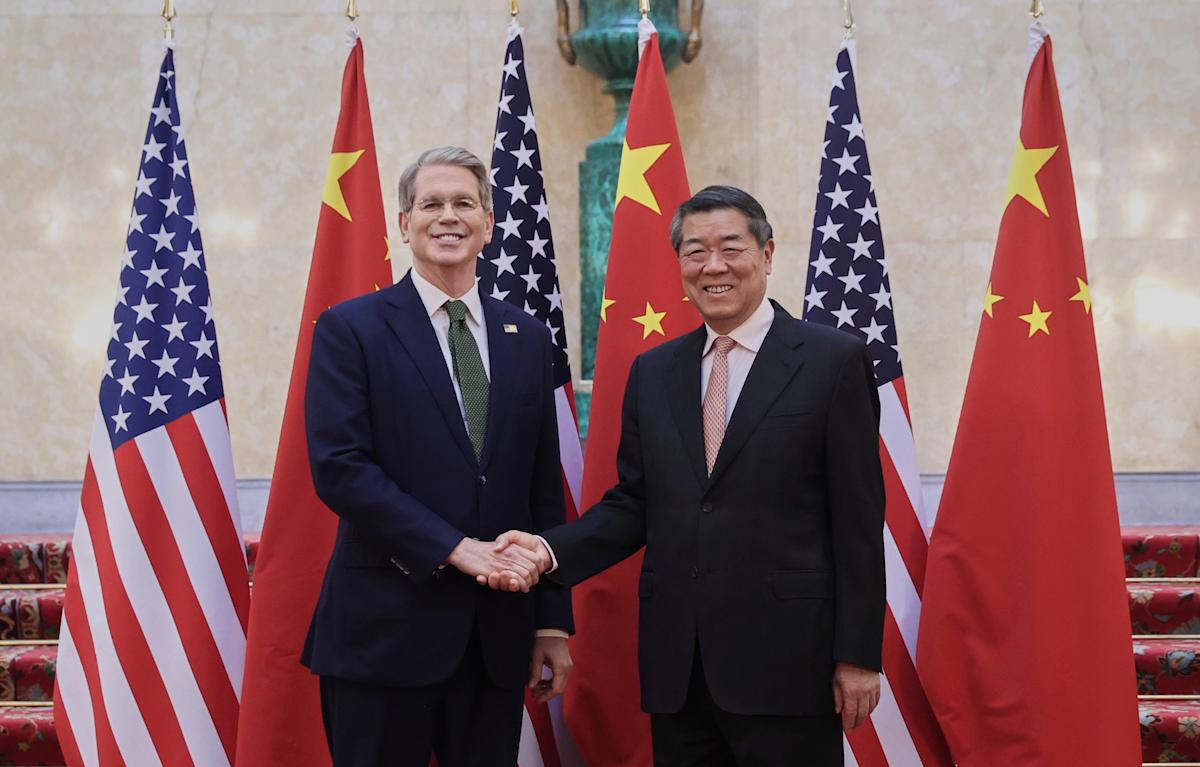The recent announcements from President Trump regarding unilateral tariff rates have sent shockwaves through multiple sectors, with many industries feeling the effects of this chaotic economic landscape. One notable account comes from Gary Friedman, the CEO of the luxury furniture retailer RH, who recently shared his insights during a company earnings call.
Friedman painted a vivid picture of navigating a “chaotic and unpredictable” quarter that was heavily impacted by tariffs, market volatility, and the struggles of a weak housing market. His candid remarks highlighted the turbulence that businesses are experiencing as they grapple with changing economic policies.
“Everywhere got rocked from the reciprocal tariff announcements,” Friedman said, emphasizing how the current market conditions have directly affected their sales. As RH’s revenue is closely tied to the real estate market, the decline in housing has made a profound impact. “When the market went down, our business went down. You had to pull forward, give back,” Friedman continued, citing the complexities of trying to maintain stability in such an unpredictable climate.
A key focus of his discussion was President Trump’s “Liberation Day” announcement—a significant escalation regarding tariffs on China that increased from 54% to over 100%. This directive brought with it severe disruptions in RH’s supply chain, as well as a pause on many existing tariffs that had previously been in place. “What happened when the reciprocal tariffs hit, we stopped shipments,” Friedman explained. The response from suppliers was immediate, with production halting, which led to significant delays and complications within the supply chain.
As a result of these disruptions, RH anticipates that tariff impacts will negatively affect their Q2 revenues by approximately six percentage points. However, Friedman reassured stakeholders that he expects a recovery in revenue during the latter half of the year. To mitigate the risks posed by the chaotic tariff environment, RH is increasingly shifting its sourcing out of China. By the end of this year, Friedman projected that 52% of their upholstered furniture would be produced in the U.S., while 21% would come from Italy. This strategic pivot underscores the need for businesses to reassess their supply chains in light of the evolving tariff landscape.
Despite the obstacles presented by tariffs, RH managed to report an unexpected profit in Q1, which led to a 19% increase in shares during premarket trading. Friedman noted that their vendor partners absorbed a meaningful portion of the tariffs, which allowed RH to remain competitive in an increasingly challenging market.
He expressed concern about the broader implications of the ongoing trade wars, suggesting that smaller competitors might struggle to survive. “I mean there are a lot of people going bankrupt,” he candidly remarked, pointing to the “ankle-biter” businesses—those smaller online entities that may lack the capital to adapt. “The businesses that I think don’t make it through the rest of this year, they don’t have the scale to deal with the tariffs,” he explained. This also presents an opportunity for RH; as weaker competitors exit the market, the company stands poised to capture market share.
Friedman’s reflections highlight a reality that many businesses are facing today: the turbulence of tariffs and economic uncertainty requires both strategic flexibility and a keen understanding of market trends. His comments are a reminder that while challenges are present, there are also opportunities to be seized in the current economic climate.
The ongoing discussions about tariffs are intricately tied to the broader economic landscape. Businesses are being forced to adapt rapidly to these changes, leading to shifts in sourcing, production, and operations. The focus on domestic production in response to tariffs not only reflects an immediate need for stability but also a long-term vision of sustainable growth.
As we continue to monitor the developments surrounding unilateral tariff rates, it’s clear that the situation remains fluid. Companies like RH are navigating a complex landscape that necessitates resilience and innovation.
In closing, the path forward may be fraught with difficulty. However, businesses willing to adapt and pivot in response to these economic pressures may find themselves better equipped to not only survive but thrive in the competitive environment shaped by recent tariff policies. As the market evolves, it will be essential for companies to remain vigilant and responsive, forging ahead into an uncertain but potentially rewarding future.
Source link










